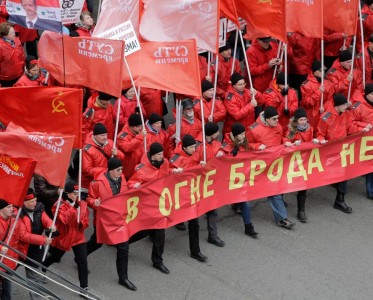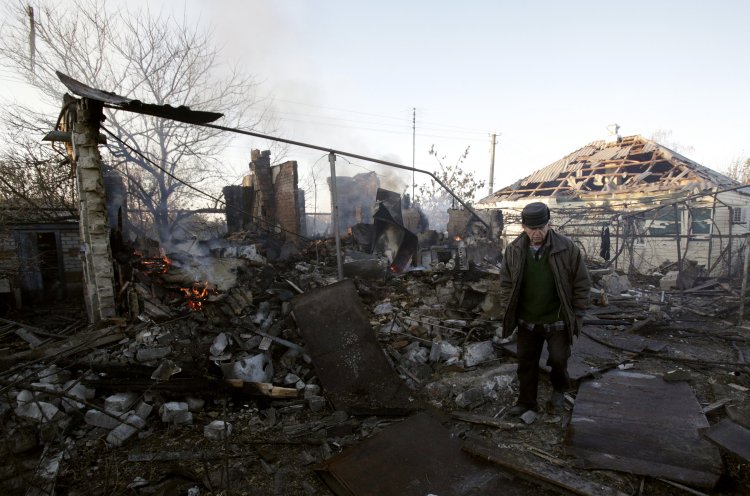“There is nothing predetermined in the history of the development of humanity,” Emil Pain says, and consequently, “the fate of Russia is not doomed.” But the mythology Russians are being told by their leaders to accept, one of “’a besieged fortress’” cut off from others, has “an inevitable consequence: cultural desertification” and that can be fatal.
But even if it isn’t, “the longer and more virulently it manifests itself,” Russia’s leading specialist on ethnic conflict says, “the more complicated will it be” for Russians to escape this desert, to reconstruct bridges to others, and to build a new and better future for themselves and their country.
In an essay in “Nezavisimaya gazeta” today, Pain notes that many countries have faced the desertification of their natural environments because of changes in climate or poor use of resources. But he argues that it is critically important to understand that “analogous processes can take place in social life.”
History shows that “cultural ‘desertification’ leads to decline and sometimes as in the case of multi-national empires even to the disintegration of the country.” And that process is more likely to prove fatal than any foreign action: As William James Durrant observed, “’it is impossible to conquer a great civilization from the outside until it destroys itself within.’”
And that process occurs in a remarkably similar way across time and place. First, these regimes seek to close themselves off; then, they suffer stagnation which produces conflicts among the elites which “with time ever more remind one of the fighting of spiders within a bottle;” and finally those divisions within the elites spread to society.
Russia in recent years has been following this trajectory, Pain says. “Numerous signs of spreading obscurantism are clearly manifested in contemporary Russia… An “ideological turn’ has occurred, from the depoliticization of the population to the political mobilization of the masses, above all a negative one against the created image of an internal and external enemy.”
After the protests of 2011-2012, he continues, “the Russian authorities launched a counterattack. For the first time since the 1980s government agitprop began to work, the essence of which in all times was reducible to obscurantism” and was designed to unify the population on the basis of myths and fears about “an external enemy.”
“It is no accident,” he continues, “that the main political force is Russia is called ‘the front,’ as in time of war,” that this obscurantism trend cut Russia off from Europe, a trend “which began several years before the introduction of sanctions by the West, or that it was accompanied by talk from the leadership about Russia’s supposed “’special path’” and an inviolable Russian “cultural code,” both ideas often used and then discredited.
This shutting of Russia off from the world “is giving birth to stagnation and depression,” with the only beneficiaries being those in the most backward forms of economic activity. And it has meant that internal problems remain unaddressed, festering and thus becoming ever more serious.
But this systemic shift also has consequences for individual Russians that some may not have noticed, Pain suggests. “Fears are becoming not only a resource for the mobilization of the population but also a weapon in competition for career advancement and other advantages.” That is because this is a mechanism common to all totalitarian systems.
That in turn leads to negative selection and promotion and thus to the deterioration of elites because “servility” is all and comparisons with outsiders are precluded. That in turn guarantees that favoritism and the sense that all officials are only temporary and accidentally in their positions, two things that leads to irresponsibility and makes the situation still worse.
Some regime politicians dismiss this as a problem. Duma deputy Milonov, for example, says it isn’t so bad that people with brains are leaving because those who are left are willing to get up at five to milk cows. “This is an example,” Pain says, “of the very irresponsibility” such people display and for which they are never punished.
That happened in Soviet times and it is happening again now, the Moscow ethnic specialist says, and in conclusion, he cites with approval the words of Terry Martin who noted that “modernization was the theory of Soviet intentions, but neo-traditionalism was the result of their unintended consequences.” The same thing risks being true again in the future.








